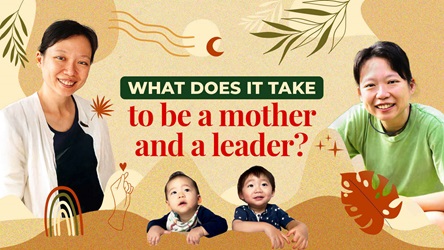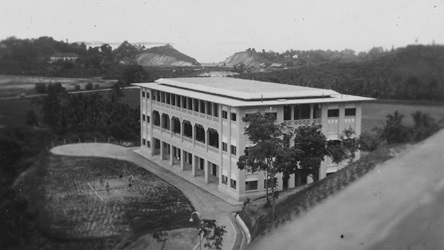“They mistake our persistence for not trusting them…”
.jpg)
It would be no exaggeration to say that the Auditor-General’s Office (AGO)’s report on its audit of the public sector is one that the media laps up every year when it is released. You could even say that the report, which highlights anomalies in the use and management of resources by public agencies, is an aberration for a public sector that so rarely openly comments on, let alone criticise, the actions of its members.
Last year, for instance, financial irregularities at six ministries and six statutory boards were flagged. Among those, a seemingly overpriced bin centre raised eyebrows, as did procured systems that went unused.
The AGO audit stirs up much public discussion, and requires that leaders step up to explain their decisions to the public on behalf of their agencies. Understandably, such responsibility of policing the public sector means the AGO will never win a popularity contest in the Service.
That is a reality AGO staff have come to accept. Their priority, says Auditor-General Willie Tan, is to be professional and focus on their mission to safeguard public accountability.
This includes ensuring that the audit is thorough and findings are accurate. “Even when our instincts tell us something is wrong, without the evidence we can’t highlight it, because that’s not fair.”
But by insisting on checking the details, its auditors risk being easily misunderstood. “Auditors have a term called ‘professional scepticism’ and it’s not easy to do that… [Agencies] mistake our persistence for not trusting them.”
“An audit is not an investigation,” he clarifies. “It is to check whether the areas audited are in order.
“What I emphasise is that our audits are based on [random but representative] test-checks. Just because we have audit findings doesn’t mean the particular area or agency has broken down. Neither are we saying that if we didn’t find anything, everything is all right.”
Changes at the AGO
Before joining the AGO, Mr Tan served in the Ministry of Defence, Ministry of Health (MOH) as well as the Public Service Division. He also helmed the Central Provident Fund Board and MOH Holdings (formerly the Health Corporation of Singapore).
In his three years so far at the AGO, he has carried out a scan of the environment they audit. Observing that more public agencies were shifting their proportion of expenditure from procurement to other areas (such as social programmes), and improving their systems in response to past audit findings, the AGO reduced its resources for auditing procurement practices. Public agencies are also using more software and IT systems, and generating much more data. This prompted Mr Tan to push aggressively for the AGO to step up its efforts in using technology for audits, such as with data analytics.
To equip his auditors with the necessary competencies to carry out their work, Mr Tan implemented a professional development framework for auditors. Under this framework, auditors at various levels must complete the pre-requisite training and attain professional certification.
One of the most critical changes put in place has been to simplify the way audit reports are communicated to the public. This is so that the nuances are not lost or, worse, misunderstood. “In the last two to three years, the media have reported using the words we use,” says Mr Tan, viewing that as proof of how they have effectively reduced jargon. There are also fewer queries to the AGO for clarification.
Engaging other public agencies
No doubt Mr Tan values communication. When he was at the MOH, he once spent an hour talking to a man who had persistently called to complain about the high cost of services at polyclinics.
Recalls Mr Tan: “This kind of situation is usually handled by the public affairs people. But he was so persistent, I agreedto talk to him. I was quite frank in explaining healthcare financing to him.”
The man left unconvinced (that the costs were justified) but conceded that he could see the rationale, and was deeply appreciative of the time Mr Tan spent with him. It is an experience that Mr Tan relates to his staff whenever they encounter problems.
“It requires time and patience, and the member of the public may still go off unhappy. Still, you give yourself a chance to explain.”
Similarly, auditors have to engage their public sector colleagues when carrying out audits. Besides technical knowledge and expertise, soft skills such as emotional quotient (EQ ) are essential.
“EQ is important because we are dealing with people. It is important not to treat issues as a personal matter. Just deal with things professionally,” he says.
Above all, he reminds them to never lose sight of the big picture. “My auditors have to understand the role of the agencies they audit and the environment they audit in.”
Public agencies naturally want to protect their own organisations, he says. Still, he finds it useful to tell his staff to approach audits with the perspective that the AGO and those being audited share the same objective: to enhance public accountability.
“No one disagrees that the AGO is a very important organisation [and] that there is need to audit,” he says.
“Every year there will be one or two issues and lapses, which require a little more time and effort to verify and seek consensus with the agencies we audit. There’ll be occasions where our perspectives are different. We discuss with the staff to get their confirmation of the facts so that the AGO can accurately and fairly present the findings.
“They may not always be entirely happy but they understand that in the end I have to exercise my independence as an AG.”
The work of the AGO doesn’t stop with its audit. If an agency doesn’t provide the AGO with a satisfactory plan to address the lapses, it checks on the agency again, a year or two later.
A good outcome is thus not an eyebrow-raising audit report, but when lapses are addressed and financial governance is enhanced.
.jpg)

Leaving a legacy A lifetime public officer, Mr Tan says he’s had a fast-moving career so far. With leadership rotation the norm in the Public Service, there is no knowing what role he will take on next. But that hasn’t stopped him from planning for the organisation’s future.
To attract young talent, he started an AGO award at two local universities and boosted internship opportunities. Many youths, he admits, have never heard of the AGO, but that is changing with three students now on AGO scholarships and more doing internships with the organisation.
While Mr Tan has put in place many solutions at the AGO, there is just one thing he has yet to crack: the clash of the audit peak period – April to July, when there is a leave embargo for staff, many of whom are parents – with the school holidays. “I haven’t been able to find a good solution,” he muses.

What’s in your daily cuppa?
Plain water
How often do you have it?
Once in the morning
- POSTED ON
Nov 1, 2016
- TEXT BY
Radhika Dhawan Puri
Bridgette See
- PHOTOS BY
Norman Ng
-
Feature
Why DBS Wants To Be Gandalf
-
Out of Office
Gillman Barracks: From Colonial To Contemporary Fun









